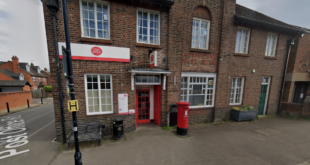On this May Day, John Westmoreland makes the case for socialists to make a turn to the rank and file as the threat of war escalates
A year ago strikes were dominating the news. Strike leaders like the RMT’s Mick Lynch, despite a desperate media onslaught against him, became a working-class celebrity for calling out the government, the bosses and our feeble opposition, Starmer’s Labour Party.
Picket lines were overwhelmingly popular with the public who brought the strikers food, money and solidarity. The strikes were about pay in the main, but a better description from the public’s point of view would be economic justice. Public awareness of economic and social injustice immunised the strikers from a vicious media campaign that tried to smear them as ‘selfish’.
The strikes were popular because they were political. The strikes confronted the government’s neoliberal policies that have increased inequality and poverty. The fourteen-year long Tory attack on the working class was at last being met by a general, though fragmented, working-class opposition that was highly politicised. Many of the strikers and their supporters welcomed the chance to bring down the Tories and smash their neoliberal offensive. Inflation-proof wage increases and increased public-service funding were popular demands and indicated a desire for a politics that was progressive and transformative.
It was the political nature of the strikes that should have led to victory, because that is what appealed to workers desperate for change. In the public sector, the causes of declining pay and worsening conditions came from the government’s privatisation, deregulation and financialisaton of services. The forced marketisation in the public sector, and the inevitable race-to-the-bottom this caused, fuelled opposition to free-market dogma. The obvious path to victory was to join up the strikes in an all-out assault on neoliberalism and to launch a working-class counter offensive. The unity of politics and economics across the various sectors of the movement was pointing towards meaningful working-class struggle.
However, confronting the government was never the aim of the trade-union leaders. Despite their left-wing rhetoric, the aim of the trade-union leaders was to bring the disputes to a conclusion and get round the table with ministers and public-sector bosses. The left, having played a role in getting a left leadership elected, failed to focus on the development of a rank-and-file strategy that would keep the pickets going and join up the struggles in a general fightback.
At the end of the day, the role of the trade-union leaders is always to negotiate the rate of exploitation and act as the managers of strikes. The message from the bosses, to ‘call off the strikes and we’ll start negotiations’, became more and more attractive to the leadership as weeks of one-day strikes turned into months, and a few concessions were held up as a victory. The energy of the rank and file has always been the only way to push disputes towards victory, and this was lacking.
In the end, the government’s strategy was to hang tough as long as the trade unions were going to fight sector by sector, and this paid off. The sectional struggles failed to break the government’s resolve and, bit by bit, the strikes faltered. The demise of the strike wave has thrown up a number of questions with which socialists need to get to grips. This article is an attempt to start the discussion.
Understand the enemy
Since the onset of neoliberal government under Margaret Thatcher, the state and its role in the economy and society has changed massively. The older generation that grew up in the 1950s and 60s remember living under the post-war consensus that a protective, welfare state was necessary to keep the working class onside after the horrors of the 1930s and the war. We shouldn’t exaggerate this. Life was still tough, but for people who remembered the hell of the 1930s of mass unemployment and the Means Test, it was a new dawn.
The Tory project, from Thatcher onwards, was to deconstruct the protective/welfare state and it got a massive boost after the financial crash of 2008 and the onset of austerity, first under Gordon Brown, then more enthusiastically under the Chancellor after 2010, George Osborne.
State agencies that were created to overcome the evils outlined in the 1942 Beveridge Report – idleness, ignorance, disease, squalor and want – have been weakened or abolished. Long gone is any notion of protecting us ‘from the cradle to the grave’ against the predations of capitalism.
In an era that the economist Grace Blakely describes as ‘vulture capitalism’, corporations circle over decaying social infrastructure, swooping to gobble up profitable morsels and leaving skeletal monuments of the welfare state behind. The state, shaped and co-opted by corporate power, is being transformed to serve their needs.
The examples to support this view are endless. From the billions handed to the Tories’ mates in the PPE scandal, to the academisation of schools, or from the tax cuts handed to the rich and the benefit cuts handed to the poor, the state’s role is being transformed into an arm of corporate power.
At national and local government level, the protective state has been subverted. Agencies that protected workers’ health and safety, the environment, and public services are being replaced by supervisory agencies that enforce marketisation, deregulation and financialisaton. It is no surprise that when the NEU took its members out on strike, the call to abolish Ofsted was cheered to the rafters at every strike rally.
There is a lot more to say about the transformation of the welfare state into a weaponised neoliberal state, but we have to look at the direction of travel. The strike wave, followed this year by the explosion of demonstrations in support of Palestine, has heightened the popular desire for transformative politics, and the government’s answer is to ramp up repression. Human rights and international law are demonised as the brutality of late-stage capitalism is affirmed at every turn. And it is not just because the Tories are evil to the core. The alternatives for them are unthinkable. They are trapped by their own dogma and a neoliberal state that is hostile to the slightest progressive reform.
If wage demands are conceded, the need for wealth redistribution is conceded. If privatisation gets stopped, then the government has to start funding social provision through taxation. If Palestine gets justice, US imperialism in the Middle East gets turned on its head, and so on. When the Tories get tough over demonstrations and strikes, their toughness masks the terror they feel that any concessions might start to reverse flagship neoliberal policies and fuel the willingness of workers to fight for more.
The working class are not demanding revolution; they hope for change through parliamentary reform. However, for the corporations and government ministers who have been waging a war on the trade unions for decades, allowing them a place at the table, allowing them to criticise the bosses’ right to manage, smacks of revolution.
Unfortunately, the Tories’ difficulties have not been exploited by the trade-union leaders. Hundreds of thousands of workers took strike action over the spring of 2023. In April, junior doctors, civil servants, Passport Office workers and airport workers were on strike. They were to be joined by ambulance crews, rail workers and teachers in the summer. The collective power of the working class was palpable. Yet, it was wasted by the leadership, who refused to call united action.
If there had been an organised and determined rank-and-file movement, less fearful of breaking the trade-union laws, and more willing to appeal for meaningful solidarity, the strikes could have won. Whereas the sectional and partial, one-day-on and one-day-off strikes that the leadership gave us, were bound to fail.
The reluctance of trade-union leaders to fight is currently being boosted by the prospect of a Labour government. The leadership is hoping and praying that Labour gets in and makes a few reforms that will negate any calls for action. This seriously misunderstands what Starmer’s Labour is about.
Left leadership
Campaigning to get left-wing leaders elected to positions within the unions is essential work. A victory for the right inevitably means that union machines are turned against activists, and that politics is shut out. Right-led unions are always limited to looking after bread-and-butter issues of pay and conditions, and politics is then left to the Labour Party. The division between politics and economics, that last year’s strikes started to overcome, would once again limit the roles of activists and campaigners.
One thing we should thank the neoliberals for is their emphatic demonstration of why right-wing trade unionism is about as useful as a chocolate teapot. The government has studiously made trade unionism into a political issue through anti-union laws, of which the latest is the Minimum Service Level Bill. And as for leaving our political demands to Labour, little needs to be said. Starmer is a thoroughly whipped cur. The hopelessness of making progressive change through parliament has reduced him to a Tory stooge in lock step with them on Nato, Israel, submission to US foreign policy, and submission to the Treasury, the City and corporate power.
So yes, by all means, let’s shut the right-wing out of the leadership. However, getting a left leadership elected without a rank and file to hold them to their word will inevitably mean surrendering disputes before they reach their potential. We should never forget the Clyde Workers’ Committee’s statement about the attitude that the rank and file should take to the trade-union leaders: ‘We will support the officials just so long as they rightly represent the workers, but we will act independently immediately they misrepresent them.’
This is especially important at the moment when the bosses and their government want total submission from the unions. The only area for negotiations in which bosses are prepared to engage the union leaders is another business development that inevitably includes increased labour flexibility, productivity and the restoration of profit levels. There is no better tomorrow in sight, and the suspension of strike action has not seen good faith on the side of the employers.
CWU
The left leadership in a number of trade unions have abandoned the strikers’ demands for better pay and job security. There is a sense that the employers are regaining control and taking revenge on trade unionists. The story at Royal Mail backs up this point, where an employer’s offensive is in full swing after the left CWU leaders called off the strike.
Bosses at Royal Mail have been particularly vicious. They recently told Ofcom, the mail’s oversight body, that their commitment to six-day deliveries is now untenable. They want to reduce second-class mail deliveries to just three days a week, and make redundancies, completely trashing what’s left of their public-service ethos. Tens of thousands of jobs at Royal Mail are under threat. The CWU leadership, who launched the Enough is Enough campaign, touted as ‘a campaign to fight the cost-of-living crisis’, has abandoned the fight in favour of compromise as their response to the Ofcom announcement makes clear: ‘The CWU will work with economists to produce an alternative and independent view on the future of postal services in the UK and embark on a major engagement exercise with our members, businesses and the public.’
For union leaders to engage in business solutions, swapping rival business plans with the employers, illustrates their failure to understand that the intention of the government is to reduce public-service workers to compliant and flexible operatives and destroy any resistance to management diktat. Posties can’t rely on the leadership to save their jobs and pay. The development of a rank-and-file alternative is urgent.
NEU
The NEU leadership, in comparison to other unions, started off brilliantly. In television and radio studios, the leaders tore the Tories apart. They never shied away from the political arguments and were successful in winning the ballot for strike action and mobilising their members with huge demonstrations in London and the major cities. A potential rank-and-file leadership came into view as young teachers spoke passionately to the media about their desire to secure pay and defend their profession.
As the summer break was approaching, NEU members were told that strikes for a fully funded pay rise would resume in September alongside other teaching unions. The Tories knew the seriousness of the situation and gambled on giving the teachers a better deal than any other offered to public-sector workers. This was a sign of government weakness, not generosity. When the union accepted a below inflation 6.5%, it could only demoralise the young teachers who had played such an important role in the strike. The left credentials of the NEU leadership were used to persuade the members to ‘bank this offer as a victory, and resume the fight over funding next year’.
This year, Education Secretary, Gillian Keegan, is offering a pay rise of just 1-2% while inflation is at 3.5%, and there is no let up on school funding. The willingness of the leadership to recommend the 6.5% offer and settle for a below-inflation pay rise has obviously encouraged the Tories to claw back the NEU’s gains.
The NEU leadership has yet to decide on how the pay dispute will be addressed, and in the meantime, they are encouraging a public campaign over school funding that will put pressure on Labour. This is hardly realistic though. Starmer has already said that Labour is not going to throw money at the areas hit hardest by Tory cuts. Austerity is set to continue.
The challenge for the left in the NEU is to consciously build a radical rank-and-file minority that will argue for strike action without waging a sectarian campaign against the most progressive leadership in the movement. This means supporting the leadership’s call to campaign for school funding, but argue patiently that only strike action will have a chance of securing it. The argument favoured by union leaders that the fight has to be postponed until better circumstances arise or a Labour government is elected, has been proved wrong time and again, and we won’t do the members any favours if we fail to point this out. If the members can be won to taking action the circumstances for a win will improve.
Broad Lefts
This brings us on to the position taken by Broad Lefts in the unions. Broad Lefts exist to get socialists elected to union positions and ensure that conferences pass left motions. They also act as a link between left leaders and the rank and file. Socialists should be active in the Broad Lefts, as this is where the best activists are likely to be.
Broad Lefts make an important contribution to trade-union democracy and the education of the membership. In particular, by standing for union positions, they force other candidates to take on political arguments and come clean on where they stand on important issues.
However, elections are not the main issue that the membership gets excited about. Defending pay and conditions is always the key to membership recruitment and retention. If the Broad Lefts can’t deliver on the basics for the membership (not necessarily their fault), their relevance will diminish, only re-emerging when the next elections come up. Therefore, the main criticism of the Broad Lefts is that they put far too much importance on union elections and not enough on rank-and-file activity.
This raises the question of why the Broad Lefts are not very successful in building rank-and-file organisation. After all, most left activists want to see a strong rank and file and a member-led union. The problem is, and always has been, that when it comes to building an independent rank-and-file movement, left factionalism tends to erupt over the question of leadership and resolves into attempts to pull the rank and file behind this or that left group.
For Marxists, who see the working class as the agency of change, the fear of sectarianism should not deter them from starting to build a rank-and-file movement. Once the working class moves into struggle, sectarianism becomes less problematic as workers want answers to the problems they face, rather than a sales pitch. Sectarians put their own organisation first, talk up its importance, and in so doing, cut themselves off from the movement. Marxists put the interests of the working class first and throw their energy into the struggle, not fighting with other socialists.
Building a rank-and-file leadership is about building the fighting capacity of workers and the leadership has to come from the ranks of the workers themselves.
Rank-and-file leaders
In many workplaces, there are undeclared leaders who articulate the grievances of their workmates, who always want to stand up to the bosses and always take the side of the working class. They were on the picket lines last year. Without them, there wouldn’t be strikes and workplace protests. Welding these working-class leaders together and developing a rank-and-file leadership increases the power of the members vis-à-vis the trade-union leaders. In the face of the employers’ offensive and capitalist crisis that we are witnessing today, workers have to fight back with determination, energy and creativity, the very things that official trade unionism regard as dangerous and unhelpful.
The role of the revolutionary left is to cultivate a rank and file leadership and give it concrete form. This requires a conscious effort and a good deal of patience, and is no easy task, but we can take the first steps now. Socialists in the workplace are the crucial element. Their task is to gather round them the politicised and militant minority that is always going to argue for action, and look for ways to strengthen the union, and engage with the wider movement.
The rank-and-file movement is the key element in turning the working class as a class in itself, to a class for itself. The largely forgotten slogans of the Labour movement, ‘an injury to one is an injury to all’, and, ‘one out all out’, have to be relearned from the bottom up. It’s been done before.
There is a long history of rank-and-file movements in the UK. They have emerged at times of crisis and the example of rank-and-file action during the First World War is relevant today.
British capitalism survives crises by appealing to ‘national unity’ and demanding that the Labour movement falls into line. A useful example occurred in 1917, when wartime privations were cutting into the living standards of armaments workers and strikes at factories in Scotland broke out. The Labour and trade-union leaders preferred the Union Jack to the Red Flag and attempted to make the workers back down, but a rank-and-file mobilisation overcame their timidity.
The initiative was taken by engineers at rank-and-file level to counter the patriotic propaganda and bring their forces out onto the picket line. The Clyde Workers’ Committee emerged as the spearhead of working-class protest at the reality of imperialist war, and was able to fight a political and economic battle that exposed the hollow claims about ‘Britain pulling together’. Class politics cut through the propaganda and led to a strike wave across the UK. Only the rank and file had the courage to take on the patriotic moonshine and stand up for their class interests.
Today, we face a government that says we are in a ‘pre-war situation’ where arms spending must increase and demands for reform can’t be afforded. Starmer is backing these policies, and the TUC also seems hell bent on supporting preparations for war.
In October, the GMB leadership successfully presented a motion to the TUC in favour of supporting increases in military spending. Astonishingly, the TUC has now fallen in line with Tory policy, and US imperialism. So-called left-wing unions like the NEU, UCU and RMT abstained in the vote. This is a disaster. The world is already seeing an arms race between the major powers, and the scale of that arms race points towards a general world war unless we stop it.
Unite leader, Sharon Graham, supports the call to increase arms spending on the grounds that it will defend jobs. This leaves investment priorities in the hands of warmongers and shows the shallowness of her claim to be anti-politics. Her much touted opposition to parliamentary politics has led workers away from confronting the system, and focusses instead on winning individual disputes. When the call to stop arming Israel is echoing across the globe, we have trade-union leaders who put ‘jobs’ in front of the civilian deaths in Gaza!
While arms spending rockets, Birmingham City Council faces £300 million cuts. The argument that austerity is necessary in Birmingham after austerity has bankrupted the council has to be fought tooth and nail, or we are opening the door to another round of cuts, more vicious than the last round. The desperate situation in Birmingham is made more frightful by the TUC’s support for more arms spending, giving political cover to the Tories.
The weakness of the TUC will undoubtedly help the Tories to further demonise human rights and international law. And this is going to impact trade-union rights as well as any workers whose industrial action threatens Tory spending priorities.
Starmer and the TUC, in surrendering to Tory war aims, have unintentionally made the case for a rank-and-file movement all the more pressing. Creating a movement is a big task, but a start was made last October when the Rank and File Combine called a mass rally in solidarity with Amazon strikers in Coventry. Hundreds of trade unionists shut down Amazon’s huge warehouse on 5 August, because rank-and-file activists got fed up with waiting and organised a real show of strength. This was a good first step, but we are a still long way short of a rank-and-file movement. This can only be overcome if revolutionaries focus their attention on the rank and file now.
We can start by making the case for rank-and-file organisation through political education, conferences and propaganda. However, above all we have to get onto the field of struggle and fight like hell. Opposition to war and austerity are widespread, and rank-and-file organisation is needed to turn dissent into active opposition.
Before you go
Counterfire is growing faster than ever before
We need to raise £20,000 as we are having to expand operations. We are moving to a bigger, better central office, upping our print run and distribution, buying a new printer, new computers and employing more staff.
Please give generously.
Source link



